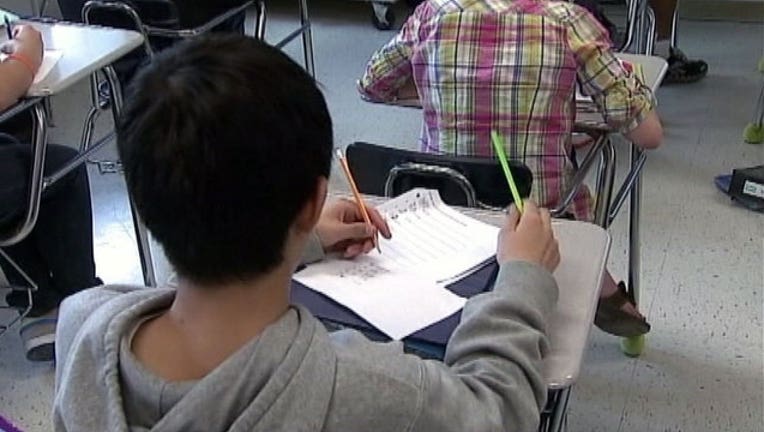Senate panel backs 'Best and Brightest' repeal

TALLAHASSEE, Fla. - A measure that would repeal an embattled bonus program for public-school teachers and principals --- and free up nearly $300 million --- was backed by a Senate education panel on Monday.
The proposed move to abandon the “Best and Brightest” bonus program is a first step by the Legislature in considering Gov. Ron DeSantis’ ambitious teacher-compensation plans, which include a new $300 million bonus program.
DeSantis also wants lawmakers to approve a $602 million plan that would set a minimum salary of $47,500 for public school teachers. Overall, the governor’s teacher-pay proposals amount to nearly $1 billion.
“I think we are all excited about having a conversation this session about teacher compensation…freeing up these dollars and making them available is part of the first step of that conversation,” said Senate Appropriations Chairman Rob Bradley, who is sponsoring the bill (SB 486) to repeal the Best and Brightest program.
Bradley told the Senate Education Committee on Monday that although the bonus program was created by the Legislature with the “best intentions,” it has “fallen short of its goals.”
“We could use those dollars in better ways,” the Fleming Island Republican said before the panel unanimously approved his proposal with little debate and no questions.
The Best and Brightest program, which is funded this year at $284 million, has been beset by problems since its creation in 2015. DeSantis has asked legislators to abandon the program less than a year after it was restructured to remove educators’ SAT and ACT college-entrance scores as a factor in determining bonuses.
Even with the changes, the governor said the framework for the award is “very complicated,” and he wants to replace it with a new program that would target higher bonuses to teachers and principals who work at public schools in low-income areas.
The bonuses in the new program would be based, at least in part, on gains that schools make in the state’s school-grading calculations and would be up to $7,500 for teachers and up to $10,000 for principals.
For the governor’s new bonus program to happen, though, the Best and Brightest program would need to go, according to the governor’s proposed spending plan for the 2020-2021 fiscal year.
“We are going to go back to the drawing board because that is the purpose of the Legislature … and I think step one was today,” Senate Education Chairman Manny Diaz Jr., R-Hialeah, said Monday.
Bradley’s proposal will now head to the Senate Education Appropriations Subcommittee, which is chaired by Sen. Kelli Stargel, R-Lakeland. Stargel voted in favor of the repeal Monday but she remained cautious about teacher pay proposals.
“As many of you are aware, we in the Legislature are very limited in how we can actually influence teacher salary,” Stargel said. “That is part of the negotiations between the local school boards and the unions.”
Under Florida law, each school district is charged with salary negotiations, and Republican lawmakers have expressed concerns that money they set aside for teacher pay may shrink after negotiations are finalized at the local level.
“My goal will be to continue to look at ways that we can make sure the dollars get to the teachers that are performing and doing a great job in the classroom,” Stargel said.
Diaz added that in the Senate there are “varying opinions” as to how money should be reshuffled if the Best and Brightest program is repealed. Some want to put the money into starting salaries while others are more open to bonuses.
“I think there are different possibilities,” Diaz said. “You just have to make sure that when we craft them, we don’t violate collective bargaining and that we make sure those dollars get into teachers’ pockets. That is the hardest part.”
The verdict is also out in the House, where nobody has filed a bill to repeal the Best and Brightest program. The annual legislative session starts Jan. 14.
Diaz, a former House member, acknowledged spending concerns raised by House Speaker Jose Oliva, R-Miami Lakes, and said it is important to remain vigilant about state economists’ warning of an economic slowdown in the coming years.
“I think we need to be fiscally responsible, recognizing that this is an issue we want to tackle, but being fiscally responsible,” Diaz said.

